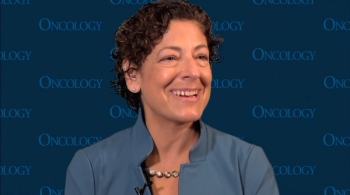
Angela DeMichele, MD, MSCE, discussed how the phase 2 I-SPY2 trial in patients with early breast cancer is informing patient therapy decisions in difficult-to-treat situations.

Your AI-Trained Oncology Knowledge Connection!


Angela DeMichele, MD, MSCE, discussed how the phase 2 I-SPY2 trial in patients with early breast cancer is informing patient therapy decisions in difficult-to-treat situations.
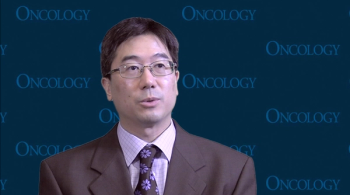
Phillip H. Kuo, MD, PhD, spoke about the future of theragnostic imaging in patients with metastatic castration-resistant prostate cancer.
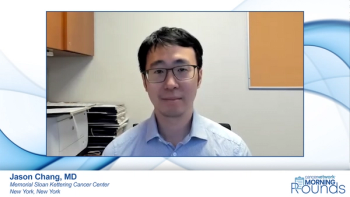
Centering discussion on a 57-year-old man with advanced NSCLC, panelists consider molecular testing strategies and the subsets of EGFR mutation.
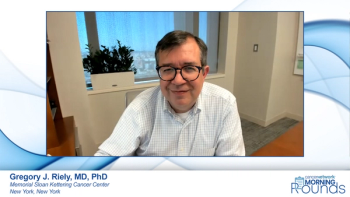
A brief reflection on optimal patient education strategies, specifically regarding biomarker testing, in the setting of non–small cell lung cancer.
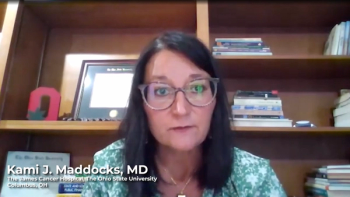
Kami J. Maddocks, MD, talks CAR T-cell therapy approvals for the treatment of relapsed/refractory diffuse large B-cell lymphoma and follicular lymphoma plus a new treatment supplanting R-CHOP.
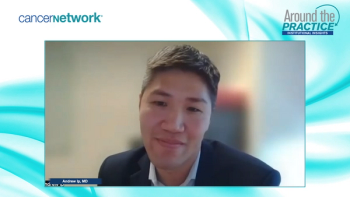
Dr Andrew Ip explains the major toxicities of CAR T-cell therapy in patients with large B-cell lymphoma and how to manage them.
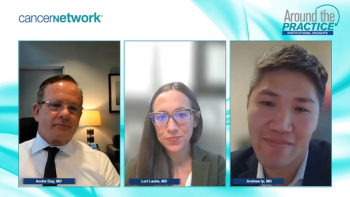
Lymphoma physicians from John Theurer Cancer Center comment on the use of CAR T-cell therapy in large B-cell lymphoma and the implications of clinical trial data in this setting.
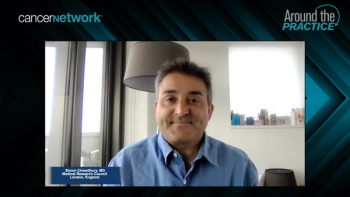
Shared insight on optimal patient monitoring strategies while administering therapy for metastatic castration-sensitive prostate cancer.
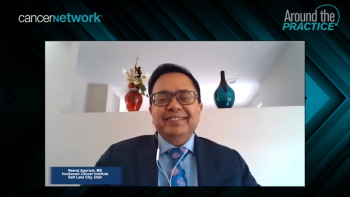
Shared insight on optimal patient monitoring strategies while administering therapy for metastatic castration-sensitive prostate cancer.
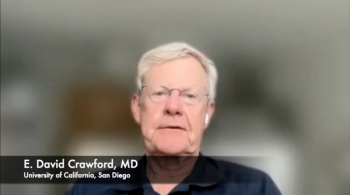
In an interview with CancerNetwork®, E. David Crawford, MD, discussed implications from the recent FDA approval of darolutamide plus docetaxel and androgen deprivation therapy in metastatic hormone-sensitive prostate cancer based on findings from the phase 3 ARASENS trial.
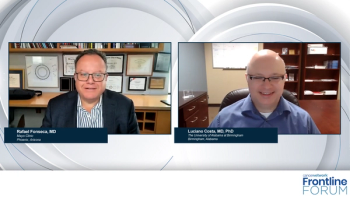
An expert describes how he determines treatment duration and discontinuation for transplant-ineligible multiple myeloma in his clinical practice.

Luciano Costa, MD, PhD, discusses his maintenance therapy strategies for patients with transplant-ineligible multiple myeloma.
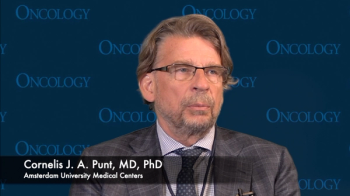
Cornelis J. A. Punt, MD, PhD, spoke about bevacizumab plus either FOLFOXIRI or FOLFOX/FOLFIRI in patients with unresectable colorectal liver metastases and right-sided or RAS/BRAF-mutant tumors and how these regimens may be used for curative-intent therapy.
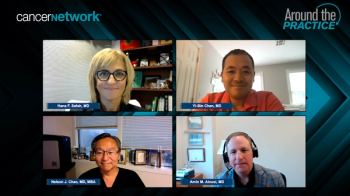
Focusing on pharmacologic options, expert panelists review frontline treatment strategies for patients with acute graft vs host disease.
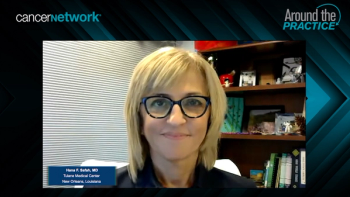
Expert hematologist/oncologists share their perspectives on use of biomarkers to help prognosticate graft vs host disease.

Phillip H. Kuo, MD, PhD, spoke about how prostate-specific membrane antigen PET scan testing affected outcomes in patients with metastatic castration-resistant prostate cancer.
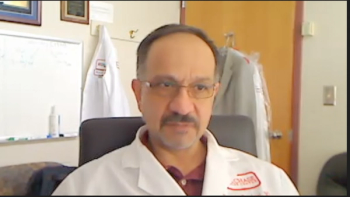
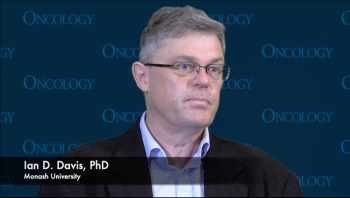
Ian D. Davis, MBBS, PhD, spoke about the TheraP study which evaluated 177Lu-PSMA-617 vs cabazitaxel in patients with metastatic castration-resistant prostate cancer.
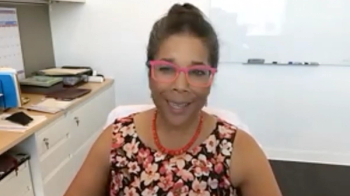
Alexis A. Thompson, MD, MPH, reviewed the unmet needs of patients with β-thalassemia who will receive betibeglogene autotemcel.
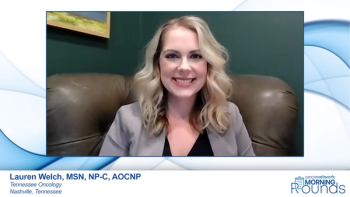
Closing out their discussion on NSCLC biomarker testing assay selection, panelists consider the optimal use of these assays in their own patients.
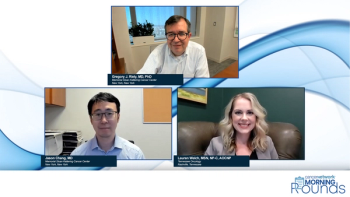
Expert oncologists provide a comprehensive review of available biomarker testing assays utilized in patients diagnosed with non–small cell lung cancer.
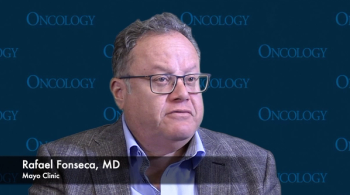
Rafael Fonseca, MD, spoke about how bispecific antibodies like elranatamab have the potential to change the treatment paradigm for patients with relapsed/refractory multiple myeloma.
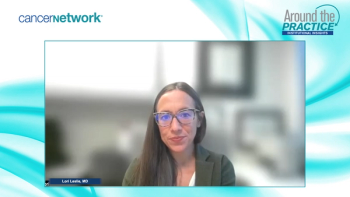
Dr Lori Leslie discusses how to assess if a patient with large B-cell lymphoma is a good candidate for CAR T-cell therapy.

Andrew Ip, MD, and Lori Leslie, MD, review clinical trial and real-world data on the efficacy and survival rates of CAR T-cell therapy in large B-cell lymphoma.

Phillip H. Kuo, MD, PhD, spoke about the use of theragnostic treatment and imaging for patients with metastatic castration-resistant prostate cancer.

Dr Rafael Fonesca illustrates how he selects therapies for patients with transplant-ineligible multiple myeloma based on real-world evidence.

A key opinion leader explains whether doublet regimens still have a place in transplant-ineligible multiple myeloma treatment.
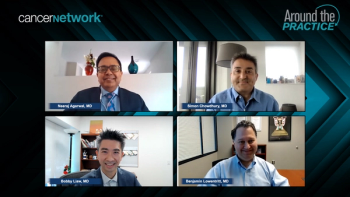
Panelists provide comprehensive insight on treatment strategies specific to the setting of low-volume metastatic prostate cancer.
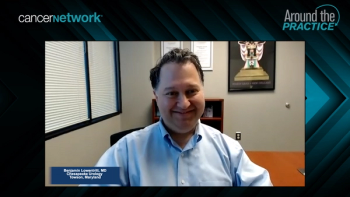
Expert oncologists review the selection of apalutamide + androgen deprivation therapy in this patient scenario of metastatic castration-sensitive prostate cancer.
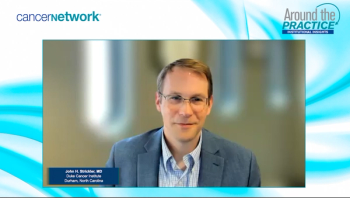
Expert oncologists look toward future utilization of circulating tumor DNA testing and consider how the field of oncology may evolve.